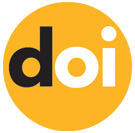Understanding the experience of online community interaction with boarding school services
Keywords:
boarding schools, Covid-19 communication, online element approach, online interaction experienceAbstract
The purpose of this study was to understand the experiences of some link boarding school users in Indonesia. Along with the development of Covid-19, the general public has increasingly reacted through online means for purposes with boarding school administrators. It is one of the benefits of advancing mobile technology and its adoption by many consumers, making it essential for corporate organizations to redesign interaction and service delivery during the Covid-19 season and students' return—ability to achieve the best online user experience. Survive in today's competition. To facilitate understanding, some consumers interact with this school, a series of literature reviews, and various sources of information so that the authors get the required data. After the data was collected, then the analysis is carried out by taking a descriptive analysis approach until these findings are valid and reliable. It was proven that the online public experience includes every point of contact (social media, websites, applications) that the customer chooses to interact with several schools through various social network platforms or online social networks, giving the impression that some boarding schools have not been able to serve their consumers.
Downloads
References
Aslan, A. (2018). Dinamika Pendidikan Islam di Zaman Penjajahan Belanda. SYAMIL: Jurnal Pendidikan Agama Islam (Journal of Islamic Education), 6(1). https://doi.org/10.21093/sy.v6i1.1024
Aslan, A. (2019). Hidden curriculum.
Aslan, A. (2019). Kurikulum Pendidikan Masa Penjajahan Jepang Di Sambas. Edukasia Islamika, 171-188. https://doi.org/10.28918/jei.v4i2.2295
Aslan, A. (2019). Peran Pola Asuh Orangtua di Era Digital. Jurnal Studia Insania, 7(1), 20-34. https://dx.doi.org/10.18592/jsi.v7i1.2269
Aslan, A., & Hifza, H. (2019). Problems in The Thai Patani Malay Islamic Education. Al-Ulum, 19(2), 387-401.
Aslan, A., Hifza, H., & Suhardi, M. (2020). DINAMIKA PENDIDIKAN ISLAM DI THAILAND PADA ABAD 19-20. Nazhruna: Jurnal Pendidikan Islam, 3(1), 38-54. https://doi.org/10.31538/nzh.v3i1.476
Aslan, A., Suhari, S., Antoni, A., Mauludin, M. A., & MR, G. N. K. (2020). Dinamika Keagamaan Masyarakat Perbatasan Paloh Kabupaten Sambas, Kalimantan Barat. Jurnal Antropologi: Isu-Isu Sosial Budaya, 22(1), 90-101. https://doi.org/10.25077/jantro.v22.n1.p90-101.2020
Bishop, J. (2007). Increasing participation in online communities: A framework for human–computer interaction. Computers in human behavior, 23(4), 1881-1893. https://doi.org/10.1016/j.chb.2005.11.004
Christofides, E., Muise, A., & Desmarais, S. (2009). Information disclosure and control on Facebook: Are they two sides of the same coin or two different processes?. Cyberpsychology & behavior, 12(3), 341-345. https://doi.org/10.1089/cpb.2008.0226
Farahdiba, D. (2020). Konsep dan Strategi Komunikasi Pemasaran: Perubahan Perilaku Konsumen Menuju Era Disrupsi. Jurnal Ilmiah Komunikasi Makna, 8(1), 22-38. http://dx.doi.org/10.30659/jikm.v8i1.7992
Haningsih, A. K. (2012). Anteseden dan konsekuensi dari brand equity (studi kasus pada pengguna jasa maskapai Garuda Indonesia di Kota Solo).
Holt, P. M., Holt, P. M., Lambton, A. K., & Lewis, B. (Eds.). (1977). The Cambridge History of Islam: Volume 2B, Islamic Society and Civilisation (Vol. 2). Cambridge University Press.
Liriwati, F. Y., Zulhimma, Z., Mulyadi, M., & Nasrullah, N. (2020). Community based education development patterns in Nurul Iman Islamic Boarding School Jambi Province. International research journal of management, IT and social sciences, 7(4), 9-13. https://doi.org/10.21744/irjmis.v7n4.937
Pianta, R. C., Mashburn, A. J., Downer, J. T., Hamre, B. K., & Justice, L. (2008). Effects of web-mediated professional development resources on teacher–child interactions in pre-kindergarten classrooms. Early childhood research quarterly, 23(4), 431-451. https://doi.org/10.1016/j.ecresq.2008.02.001
Puntoadi, D. (2011). Menciptakan Penjualan via Social Media. Elex Media Komputindo.
Qomaro, G. W. (2019). Pesantren As Halal Tourism Co-Branding: Halal Industry For Sustainable Development Goals. Maqdis: Jurnal Kajian Ekonomi Islam, 4(1), 11-22. http://dx.doi.org/10.15548/maqdis.v4i1.206
Robelia, B. A., Greenhow, C., & Burton, L. (2011). Environmental learning in online social networks: Adopting environmentally responsible behaviors. Environmental Education Research, 17(4), 553-575. https://doi.org/10.1080/13504622.2011.565118
Santoso, I. (2009). Interaksi Manusia dan Komputer Edisi 2. Penerbit Andi.
Schmid, H., & Bar-Nir, D. (2001). The relationship between organizational properties and service effectiveness in residential boarding schools. Children and Youth Services Review, 23(3), 243-271. https://doi.org/10.1016/S0190-7409(01)00135-9
Spillane, J. J. (1991). Ekonomi pariwisata: sejarah dan prosepeknya. Kanisius.
Suhardi, M., Mulyono, S., Aslan, A., Syakhrani, H. A. W., & Putra, P. (2020). Perubahan kurikulum lembaga pendidikan Islam di Sambas pada masa Kesultanan Sambas. Ta'dibuna: Jurnal Pendidikan Islam, 9(1), 034-048. http://dx.doi.org/10.32832/tadibuna.v9i1.2715
Susanto, T., Sulistyorini, L., Wuryaningsih, E. W., & Bahtiar, S. (2016). School health promotion: a cross-sectional study on clean and healthy living program behavior (CHLB) among Islamic Boarding Schools in Indonesia. International Journal of Nursing Sciences, 3(3), 291-298. https://doi.org/10.1016/j.ijnss.2016.08.007
Van Deursen, A. J., Van Dijk, J. A., & Peters, O. (2011). Rethinking Internet skills: The contribution of gender, age, education, Internet experience, and hours online to medium-and content-related Internet skills. Poetics, 39(2), 125-144. https://doi.org/10.1016/j.poetic.2011.02.001
Zagel, C. (2016). Conceptual Foundations. In Service Fascination (pp. 15-88). Springer Gabler, Wiesbaden. https://doi.org/10.1007/978-3-658-11673-6_2
Published
How to Cite
Issue
Section
Articles published in the International Journal of Business, Economics & Management (IJBEM) are available under Creative Commons Attribution Non-Commercial No Derivatives Licence (CC BY-NC-ND 4.0). Authors retain copyright in their work and grant IJBEM right of first publication under CC BY-NC-ND 4.0. Users have the right to read, download, copy, distribute, print, search, or link to the full texts of articles in this journal, and to use them for any other lawful purpose.
Articles published in IJBEM can be copied, communicated and shared in their published form for non-commercial purposes provided full attribution is given to the author and the journal. Authors are able to enter into separate, additional contractual arrangements for the non-exclusive distribution of the journal's published version of the work (e.g., post it to an institutional repository or publish it in a book), with an acknowledgment of its initial publication in this journal.














